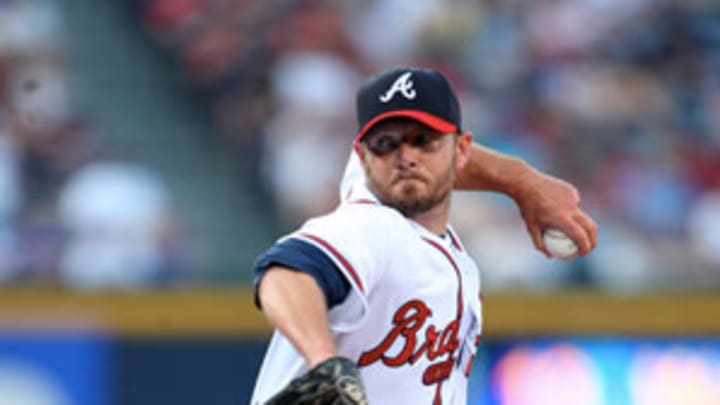My Sportsman: Billy Wagner

Second Chance is also the name of the two non-profit, after-school learning centers Wagner and his best friend, Erik Robinson, founded in southwestern Virginia.
Because of the excellent work Wagner does there, and because of the candor and humility he showed in his exemplary, just-finished 16-year big-league career, Billy Wagner is my nominee as Sportsman of the Year.
If you followed the Braves-Giants series in the first round of the playoffs last month, you remember this: In the second game of the series in San Francisco, Wagner, Atlanta's left-handed closer, injured his oblique muscle pitching in the 10th inning of a game the Braves won in 11. He was writhing in pain and he was out for the rest of the five-game series, which was then tied, 1-1. The Braves then lost two tough ones at home, both by the score of 3-2. The series was over. Braves manager Bobby Cox's career was over. Billy Wagner's career was over. It was wrenching.
"I wanted to close my career at the World Series, help Bobby go out with a ring," Wagner said by phone. He was at his farm, in the countryside on the outskirts of Charlottesville, Va., where he lives with his wife and their four children. "Nobody wants to end a career with an injury. I'm sure there'll be times in the future I'll think about it. It's always going to be hard to look at that and say, 'What if?' But I'll think more about our last regular-season game, where I punched out the side in the ninth and we got ourselves in the playoffs on the last day of the season.
"Thing is, I look at that whole last season as a second chance," Wagner said. He was one of the great talkers in the game. Baseball writers will miss him. "I was coming off an injury. The Astros [his rookie team] didn't want me." Few teams were thinking of Wagner as a closer. But the Braves, the team Wagner followed as a kid, were.
In 2010, at age 39, Wagner had one of the best seasons of his career. Maybe the best. He was 7-2, with 37 saves and a 1.43 ERA.
That was then.
The two Second Chance Learning Centers are in the Virginia coal country, where Wagner grew up, a couple hours from where he lives now. The high school dropout rate in that part of Virginia is staggering, Wagner says. According to the its website, the program "was established to address the increased school dropout rate in Southwest Virginia by providing free counseling, tutoring and mentoring for middle and high school students with social and educational problems." The operating budget for Second Chance is roughly $500,000 per year. Half comes from fundraising that Wagner helps organize. The other half comes from his checkbook. In addition,Wagner helps pay for college tuitions of Second Chance graduates. At any given time, there are about 32 students in Second Chance. Some students stay involved in it for only a couple months, others have stayed for as along as two years.
"I'd have been in Second Chance, for sure," Wagner said. "I was a C student in high school, at best. Had it not been for sports, it probably would have been worse."
In high school, in both football and baseball, Erik Robinson played against Wagner, who attended Tazewell High. (There's one Second Chance center in Tazewell, Va., and another one Bluefield.) At Ferrum College, they were football and baseball teammates. Today, Robinson, trained in counseling, is the executive director of Second Chance.
"Billy had just done something for the Make-a-Wish Foundation," Robinson recalled the other day, remembering the origins of their program six years ago. "We were talking about schools where we grew up. He said, `I wish there was something we could do to give these kids a second chance.'" That phrase inspired everything."Billy says, `We can't change the world, but we can change southwestern Virginia.'"
Three days after his 2010 season was over, and his baseball career with it, Wagner was back to organizing a big upcoming country-music fundraiser for Second Chance.
"When one door closes, another opens," Wagner said the other day. "That's how I look at it. People can't believe I'm not coming back to baseball, but I'm not.Second Chance is a chance for me to pay it forward, give something back, do something different. Life gives you many chances to be successful. Life's tough. Baseball's tough. Baseball gives you three chances. But you might need more than three strikes in life."
The Braves next year will likely have a new closer, Craig Kimbrel, a righty Billy Wagner: a fellow Southerner, a flame-thrower, a big talent. He's the guy who took the loss in Game 3 of the Giants-Braves series. Last month, the moment was bigger than him. That won't always be true. He's too good.
"We talked about the game," Wagner said. That 3-2 loss. The game of baseball,. The game of life. "People are always going to have expectations. People are going to be critical. But he's what, 22? He's going to get a second chance. Just like I did. The question is, What are you going to do with it?"
